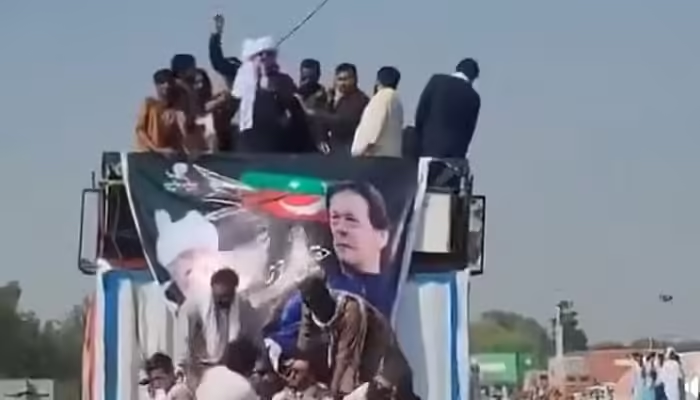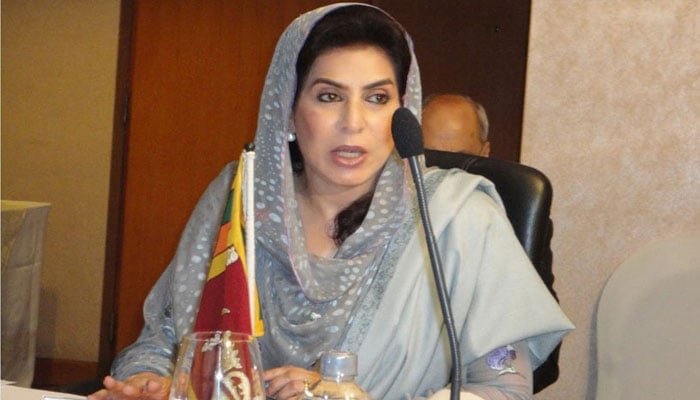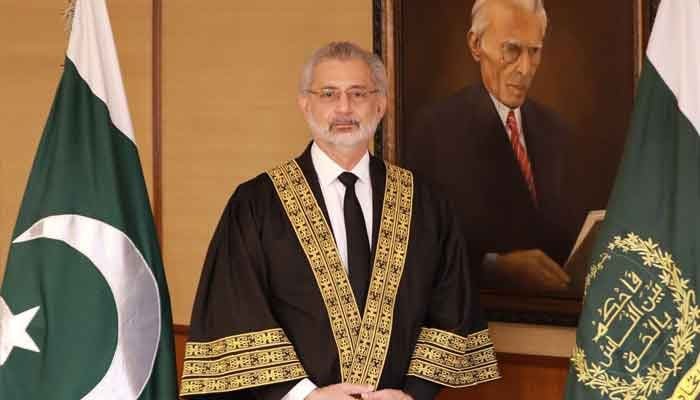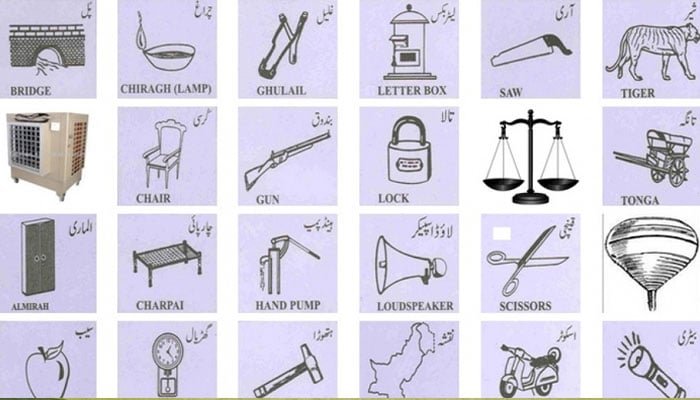Political tensions escalated in Pakistan as Khyber Pakhtunkhwa Chief Minister Ali Amin Gandapur’s convoy remained halted for more than two hours near the Burhan Interchange. The convoy, consisting of peaceful political workers, was reportedly met with heavy shelling, raising concerns about the treatment of demonstrators and the ongoing clashes between law enforcement and Pakistan Tehreek-e-Insaf (PTI) supporters.
A Standoff at Burhan Interchange
Ali Amin Gandapur, a prominent leader of PTI, reported that his convoy had been stopped near the Burhan Interchange for over two hours. He expressed frustration at the situation, claiming that peaceful political workers were being subjected to tear gas shelling and even live firing. In his statement, he mentioned that the workers were being fired upon without any provocation, leading to injuries. The injured workers were taken to nearby hospitals for medical treatment.
This situation at Burhan Interchange is part of a broader wave of political unrest as PTI workers and supporters mobilize across the country. The convoy, determined to make its way to the D-Chowk area of Islamabad, has faced significant roadblocks. According to Gandapur, efforts are being made to prevent them from reaching their destination, including the digging up of the motorway to create obstacles. However, the chief minister remains resolute, stating, “In any case, we will reach D Chowk.”
Clashes and Arrests at D Chowk
While Ali Amin Gandapur’s convoy was dealing with the standoff near Burhan Interchange, a more intense situation was unfolding at D Chowk in Islamabad, a central point for political rallies and demonstrations. Clashes erupted between the police and PTI workers in several areas of Islamabad, with D Chowk becoming a focal point of these confrontations.
The police, trying to control the demonstrators, resorted to aggressive measures, including tear gas and baton charges. Over 30 PTI workers were arrested at D Chowk, as tensions between law enforcement and PTI supporters reached a boiling point. Among those arrested were two prominent figures, Aleema Khan and Uzma Khan, the sisters of PTI founder and former Prime Minister Imran Khan. The arrest of Imran Khan’s family members has added a new layer of controversy to the situation, as PTI supporters rallied for their release.
Escalating Tensions and Political Divisions
The events near Burhan Interchange and D Chowk reflect the deep political divisions in Pakistan today. PTI, once the ruling party, has become the focal point of mass protests following Imran Khan’s ousting from office. The party continues to hold significant influence, mobilizing large crowds across the country in a bid to challenge the current government and push for early elections.
However, the response from law enforcement has been swift and often harsh. Peaceful protestors, according to PTI leaders, have been met with excessive force, raising concerns about the suppression of political dissent. The situation at Burhan Interchange and D Chowk is emblematic of these tensions, with both sides blaming each other for the escalation.
Ali Amin Gandapur’s account of the shelling and firing on peaceful workers highlights the gravity of the situation. His convoy, consisting of individuals exercising their democratic right to protest, was reportedly subjected to violent measures, deepening the sense of injustice felt by PTI supporters. The chief minister’s resolve to reach D Chowk, despite the challenges, underscores the determination within PTI’s ranks to continue their struggle.
The Arrest of Imran Khan’s Sisters: A New Controversy
The arrest of Aleema Khan and Uzma Khan from D Chowk has intensified the political crisis. Both women are prominent figures, not just for their association with Imran Khan, but for their contributions to Pakistan’s public life. Aleema Khan, known for her philanthropic work, and Uzma Khan, a respected figure in the PTI leadership, have now become symbols of the government’s crackdown on dissent.
PTI supporters have expressed outrage at the arrests, seeing them as an attack on Imran Khan’s family and a politically motivated attempt to silence the opposition. The detention of the Khan sisters is likely to fuel further protests and galvanize PTI’s base, which remains loyal to Imran Khan and his vision for Pakistan.
What Lies Ahead?
As the political crisis deepens, Pakistan faces a challenging period of uncertainty. The standoff at Burhan Interchange, the clashes at D Chowk, and the arrests of PTI workers and leaders all point to a nation grappling with profound divisions. While Ali Amin Gandapur’s convoy remains determined to reach D Chowk, it is clear that the path ahead is fraught with obstacles, both literal and political.
For PTI, the coming days will be critical as they continue to push for their demands while navigating a highly volatile political landscape. The arrest of Aleema Khan and Uzma Khan adds to the stakes, as their detainment could spark a new wave of protests and further clashes with law enforcement.
The situation calls for restraint and dialogue from all sides to avoid further violence and ensure that democratic processes are respected. As Pakistan’s political leaders chart a way forward, the country watches closely, hoping for a resolution that prioritizes peace and stability above all else.



